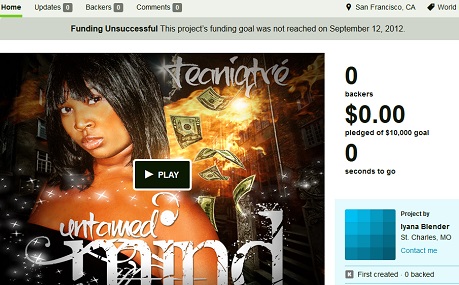 The late Hall of Fame NFL coach Vince Lombardi once said, "People who work together will win whether it be against complex football defenses, or the problems of modern society." If we were to take any advice, why not the advice of the man whose legacy of wrangling 45 disparate players on a field earned him an unheard of 5 Super Bowl victories and a re-christening of the Super Bowl trophy to the "Vince Lombardi trophy."
The late Hall of Fame NFL coach Vince Lombardi once said, "People who work together will win whether it be against complex football defenses, or the problems of modern society." If we were to take any advice, why not the advice of the man whose legacy of wrangling 45 disparate players on a field earned him an unheard of 5 Super Bowl victories and a re-christening of the Super Bowl trophy to the "Vince Lombardi trophy."
It goes without saying a definitive strength is present when people band together for a common cause and goal.
A person with a great idea or cause can only go so far without support from others. That support most times comes in the form of financial backing. Sadly, when communities of color seek bank loans or government grants to fund their business ventures, they often come up empty. Gabriel Rich, Public Relations representative with Starr Child Entertainment and an avid student of economics, claims the disbursement of such funds has dropped drastically over the last few years due to economic pressures.
"[And there's] a lot of red tape that people of color are not able to meet, such as meeting capital and credit requirements [and ] the limited allotment of funds available to people of color," said Lynn Smith of BBnomics, a Black-owned business crowdfunding site.
The void in funding has caused people of color to seek alternative ways of funding their business dreams. Black to Black business crowdfunding has emerged as a needed niche for communities of color to level the playing field within the U.S.
Companies like Full 5 Media Group (F5MG) and BBnomics have taken the torch to build upon the crowdfunding phenomenon to better communities of color.
 Historically, Blacks in the U.S. have had to work harder to achieve the same level of success as their white counterparts. According to the latest Census Bureau, Black-owned businesses increased 60.5 percent to 1.9 million businesses from 2002 - 2007. The top three states with Black-owned businesses were New York (10.4%), Georgia (9.6%), and Florida (9.4%). Although these statistics are encouraging, it pales in comparison to the Black-buying power in the U.S. The Nielsen Company did a study on African-American consumers and found their projected buying power to be $1.1 trillion by the year 2015. One would think if such a financial force is resident in the black community, even more black-owned businesses would be present and thriving.
Historically, Blacks in the U.S. have had to work harder to achieve the same level of success as their white counterparts. According to the latest Census Bureau, Black-owned businesses increased 60.5 percent to 1.9 million businesses from 2002 - 2007. The top three states with Black-owned businesses were New York (10.4%), Georgia (9.6%), and Florida (9.4%). Although these statistics are encouraging, it pales in comparison to the Black-buying power in the U.S. The Nielsen Company did a study on African-American consumers and found their projected buying power to be $1.1 trillion by the year 2015. One would think if such a financial force is resident in the black community, even more black-owned businesses would be present and thriving.
Full 5 Media Group, headed up by media expert Kori Raishon, specializes in mass media-supported crowd funding and it is also a Black-owned business. F5MG is a collective of radio, TV, and print outlets, which is often leveraged to promote a cause, a campaign, or an organization. The company has access to 31 media platforms that synergize, maximiziing any campaign's fundraising possibilities. F5MG's philosophy is that the world at large is essentially our community, thus we should be able to reach out to those outside our normal scope of influence.
The person with marketing behind him/her and an effective use of media can reach a wider demographic," said Raishon.
Businesses can hire F5MG for a one-time fee upfront or - in the case of crowd-funding campaigners - for a percentage of money raised.
Crowd-funding campaigners use F5MG to provides their cause with media legitimacy. Consequently, more potential donors besides friends and family are interested resulting in a more solid likelihood of meeting their campaign goal.
"Everything grassroots turns professional and due to competition. All these crowdfunding sites are essentially fighting for funds," said Raishon. "We give you an edge over the competition."
 Raishon may be right because as great crowd-funding campaigns are, many fail for similar reasons.
Raishon may be right because as great crowd-funding campaigns are, many fail for similar reasons.
After close examination of the crowd-funding landscape, BBneomics representative Smith gave NEWD a concise list of six reasons that crowdfundng campaigns do not reach their goals.
- Too little time devoted to planning and promotion
- Project owner did not successfully engage their personal network
- Project owner did not build press relationships
- Campaign funding threshold is set too high
- No video included
- Project owner had little to no background in project field
The preparation one exercises in any tasks speaks volumes to how successful that task shall be. In fact, the aforementioned list may be the reason Black businesses, organizations and non-profits fail in the modern era, as well. The phenomenon of crowdfunding especially within the Black Diaspora has the potential to be huge. Smith is confident that ventures such as BBnomics will truly empower the black community to be their biggest supporter.
BBnomics just launched last October. It originally started as a networking group on Facebook helping to find Black-owned businesses and garner support for them. BBNOMICS recognized many of the products and services within the Black community are ones that Blacks do not utilize. Thus, BBNOMICS was inspired to find businesses and resources to start businesses in Black communities. Communities of color, in essence, would help themselves succeed in different ventures.
Smith cites the principle of cooperative economics, known in Swahili as Ujamaa, as an important key for true advancement. Simply, a person becomes a person through the people or community. Crowd-funding, which gives the funder an incentive or a kickback for helping the product succeed, is the true manifestation of the principle. It is the villagization of production, which means you and I have a hand in all that is produced.
In regards to the current success of black crowdfunding, most Black-funded projects that meet their goals are films.
"For instance, Spike Leeís Ė Da Blood of Jesus, Tommy Sotomayor's A Fatherless America, as well as King Flex Entertainment's Hidden Colors 3 have all had success with alternative sites, but this proves we do support "BlackĒ projects," said Smith. "The key is to channel this success to community initiatives as opposed to individual projects."
 How can you galvanize a community without help? This is the problem Raishon and F5MG are here to solve.
How can you galvanize a community without help? This is the problem Raishon and F5MG are here to solve.
Businesses can benefit from F5MG's brand of crowdfunding through opportunities to receive media attention and publicity. In fact, they offer businesses a courtesy connection to any relevant causes they know of that align with the company's brand identity. Essentially, tt becomes a synergy of a worthwhile campaign with a pre-existing business.
The business may receive:
- Product placement on the "big screen" if the campaign is a movie
- Mention in a playbill if it is a play
Because F5MG started as a means of covering happenings within Black and Hispanic communities,. F5MG seeks to place these communities of color on an equal playing field with the rest of the U.S.
The media outlets under the F5MG umbrella are all privately owned with the notion to help empower each other.
After about a year of running F5MG, Raishon discovered the crowdfunding craze. But found that in itself, without leveraging the power of marketing and a collective effort, often resulted in unmet goals. Although crowdfunding inherently is a grassroots vehicle, Raishon realized it was not enough.
The services F5MG provides double as market research for businesses and campaigners. They have the ability to see who is interested in their project or business, thus they can properly target certain demographics. Raishon estimates the use of all F5MG's media outlets for a business or campaign can reach 3 million people in one week. Harnessing the power of one's extended community is at the root of black to black crowdfunding, a lane new comers BBnomics endeavors to capitalize on.
Rich believes that even though the business or campaign may be Black-owned or inititated, one does not have to limit oneself to Black support.
"Depending on whoís raising funds, a black person isnít solely dependent on black people to fund their project. Crowdfunding connects you to a world online community. That means you can supporters from around the globe. Thatís the beauty of it," said Rich.
Is there a particular pattern to Black crowdfunding projects? Do only certain types get funded faster?
"From what Iíve observed, non-celebrity African-Americans that have the most interesting topics usually reach their fund raising goals, depending on how well they promote themselves. And by interesting I mean a topic that appeals to the senses of a wide audience without necessarily being a pop topic. The pattern Iíve noticed, however, is that we tend to marginalize our projects. We donít think world view as much as we have a more local/regional thinking and approach," said Rich.
A certain duality hence exists with the advent of black to black crowdfunding. How successful can black to black crowdfunding be? What allows one campaign to thrive, while another fails?
"You have to really work to let your people know about the campaign. It is imperative to keep up with it via social media, employ proper follow up and have a strong team to help get the word out," said Raishon.

